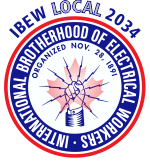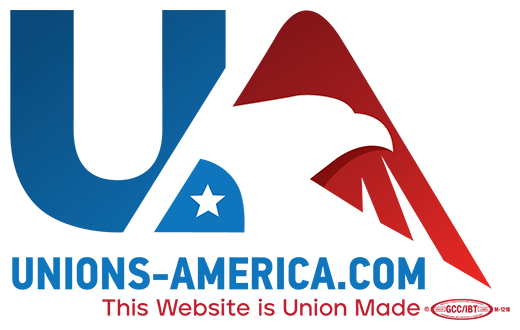IBEW F.A.Q.
Q: What is the Union Advantage?
Q: What are the two types of IBEW Membership?
Q: Won’t it cost a company a lot money if the union comes in?
Q: Can I be fired for participating in a Union campaign?
Q: What can the union do about favoritism?
Q: The employer says the union can’t guarantee us anything. Can you?
Q: Management says the union is just after our dues money. Why should we pay money to the union?
Q: How does the Union work?
A: A union is a democratic organization of a majority of the employees in a facility. The basic idea of union is that by joining together with fellow employees to form a union, workers have a greater ability to improve conditions at the worksite. In other words, “in unity there is strength”.
Q: Who runs the Union?
A: The union is a democratic organization run by the members. Members elect the local officers. You vote on many issues of importance to you. You vote on your contract. Union members elect delegates to national conventions, where delegates elect national officers and vote on major issues affecting the union such as constitutional amendments. The union is the people themselves.
Q: What is the Union Advantage?
A: Unions make a difference both at work and in the quality of life you earn. We call that difference the union advantage. Having a union on your side makes your job and your workplace safer and fairer. You get paid better and are more likely to have benefits that help you balance work with life at home. Your health and ability to do your job become important, and your right to fair treatment gets enforced.
In Manitoba there are approximately 196,000 union members which is about 36% of the provinces workforce. Union workers earned, on average, $6.10/hour more because their unions negotiated fair wages and work hours.
Q: What are the two types of IBEW membership?
A: There are two categories of membership in the IBEW, “A” and “BA”: “A” members generally work for contractors and may change employers or work locations frequently. They pay into the IBEW Pension fund.
“BA” members are usually hired by and work for a single employer. Pension and benefits are usually negotiated as part of the IBEW contract with that employer. Monthly dues are assessed in accordance with the IBEW Constitution and IBEW Local 2034 Bylaws.
Q: Won’t it cost a company a lot of money if a Union comes in?
A: In the short run it’s true that unions cost employers more in terms of wages and benefits. But in the long run, that doesn’t necessarily hurt the employer. Many unions are good for the employers as well as for the workers. The reason is simple. With a union there is higher morale, and there is a mechanism for workers to have a voice in how the workplace operates. Satisfied employees are more productive, and less likely to quit, so there is less turnover. Also, management benefits when it gets input from the workers on how the operation could be run better.
Q: Can I be fired for participating in a Union campaign?
A: First of all, the law prohibits any employer from discriminating against people in any way because of their union activity. If an employer does harass or discriminate against a union supporter, the union files a charge with the Labor Board, and prosecutes the employer to the fullest extent. The best safeguard against the employer harassing anyone is for everybody to stick together and win their union. Without a union, management has a free hand to treat people as they please. But with a union, everyone has the protection of a union contract.
Q: What can the Union do about favouritism?
A: Fairness is the most important part of the union contract the same rules apply to everyone. If any worker feels that he or she is not being treated fairly, then he or she of course still has the opportunity to complain to the supervisor, just like before. But under a union contract, the supervisor or manager no longer has the final say. They are no longer judge and jury. If the worker is not satisfied with the response of the supervisor, the worker can file a grievance. The first step of a grievance procedure is for the steward to accompany the worker to try to work it out with the supervisor. If the worker is not satisfied, the steward and the employee with help from the Union Business Manager can bring the grievance to higher management. If the complaint is not resolved, then the issue can be placed before an outside neutral judge, called an arbitrator.
Q: What about all those meetings we’re having where management talks abut the Union being bad and corrupt?
A: The employer would like you to think that unions are corrupt. The truth is that unions are decent, honest organizations dedicated to improving the lives of working people. Nothing is perfect, and there have been examples of union officials who have not been honest. But the same is true of government officials and business leaders. There are a few bad apples in any group of people. Telling you not to vote for a union because there have been some corrupt officials is like telling you never to work for a company because a company officials has been corrupt.
Q: The employer says the Union can’t guarantee us anything. Can you?
A: The union can guarantee this: that when workers stick together as a union they have more bargaining power and more of a voice than they do as individuals. When the union wins, you will negotiate a contract with the employer. We can make no promises on what the contract will contain. That is for you to decide when you vote on your contract. We can guarantee that the contract will be legally binding, and the union will make sure the contract is enforced.
Q: Management says the Union is just after our dues money. Why should we pay money to the Union?
A: Dues are used to run your union and keep it strong. The dues are divided between the local union and the national union. The money is used to provide expert services to your local union, including negotiators, lawyers, economists, and educators; to pay the salaries of officers and staff, including organizers; to provide newsletters and conferences. The local union’s money is used for reimbursing stewards for lost time, for the union hall, and for other expenses of your union. Did you know that the employer also pays dues to organizations? Employers have their own ”unions” – such as the Chamber of Commerce or the National Association of Manufacturers. They pay for representation-why shouldn’t you? Besides, since when is the company so concerned about your money?
Q: How much are Union dues?
A: The dues will depend upon what the local needs to operate efficiently and effectively. However, the dues will be set by you, as a local union, with the exception of the International portion of the dues, which is set and voted by all Local Unions at the International Convention every five (5) years. However, no dues are paid until the majority of workers vote to accept a contract they helped to negotiate. All initiation fees will be waived for members in newly organized units.


